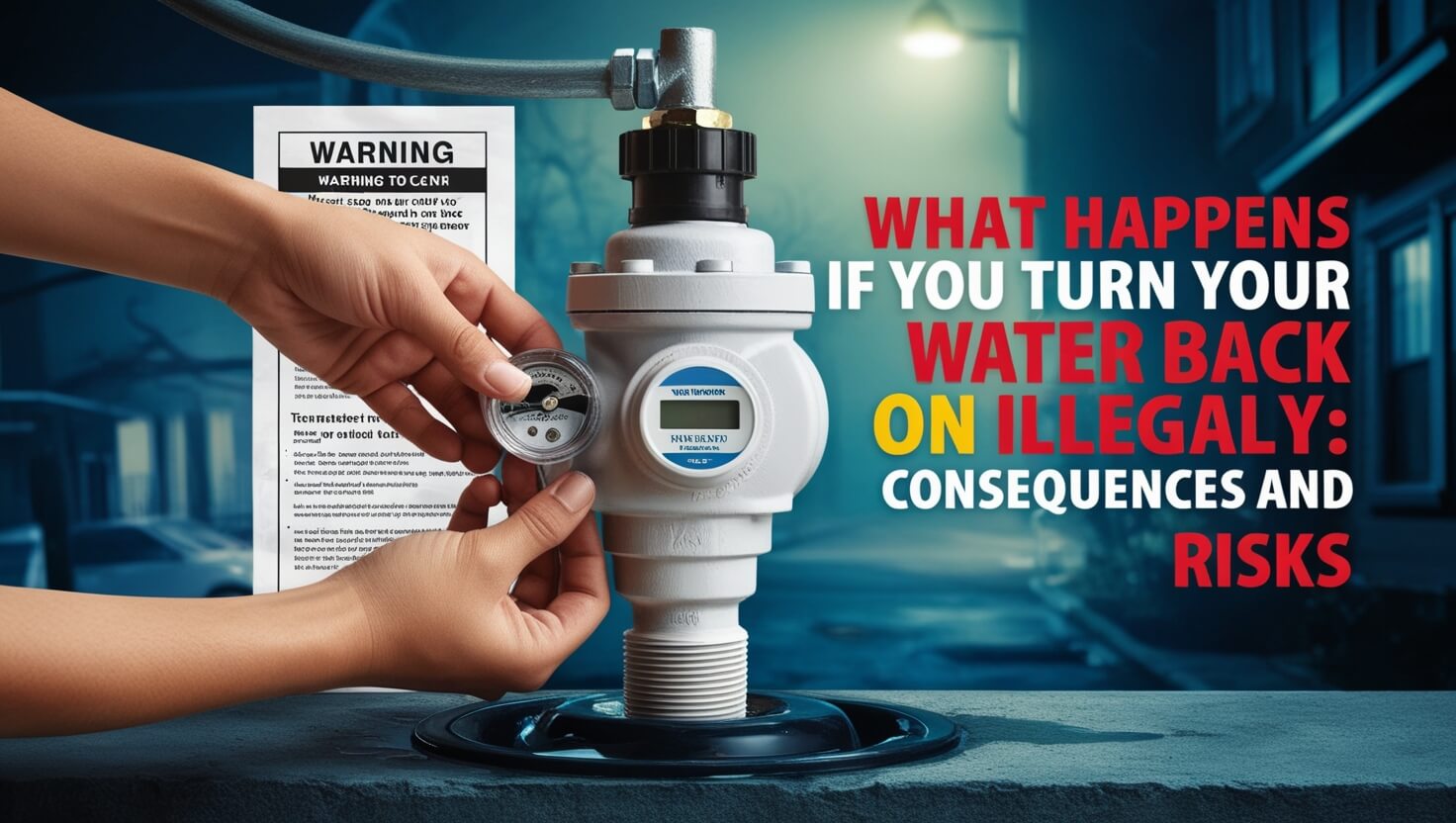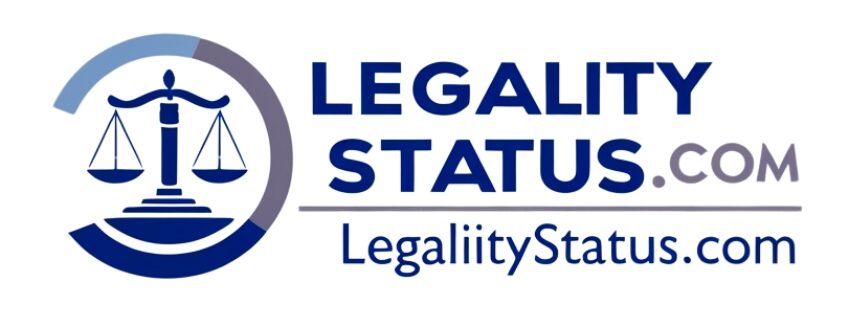What Happens If You Turn Your Water Back On Illegally: Consequences and Risks

Facing a water shut-off can be a stressful and challenging experience. When the taps run dry, it’s tempting to take matters into your own hands. But what happens if you turn your water back on illegally? The consequences can be severe, ranging from hefty fines to criminal charges and even safety hazards. This article will explore the risks and repercussions of illegally reconnecting your water supply, as well as legal alternatives and preventive measures to keep your water flowing.
Understanding Water Shut-Offs
Before diving into the consequences of illegal reconnection, it’s crucial to understand why water gets shut off in the first place.
Common Reasons for Water Disconnections
Water companies don’t shut off service lightly. Common reasons include:
- Unpaid bills: The most frequent cause of disconnections.
- Maintenance and repairs: Temporary shut-offs for system upgrades or fixes.
- Emergency situations: Such as water main breaks or contamination issues.
- Property vacancy: Long-term unoccupied properties may have water turned off.
Legal Processes for Water Shut-Offs
Water utilities must follow specific legal procedures before disconnecting service:
- Multiple notices: Customers typically receive several warnings before disconnection.
- Grace periods: Many jurisdictions require a waiting period after the final notice.
- Special protections: Some areas have rules protecting vulnerable customers, like those with medical needs.
Understanding these processes can help you avoid disconnection or address it legally if it occurs.
The Temptation to Reconnect Water Illegally
When faced with a dry faucet, the urge to restore water flow can be overwhelming. Let’s examine what drives people to consider illegal reconnection.
Desperation and Basic Needs
Water is essential for life. Without it, daily activities become impossible:
- Drinking and cooking
- Bathing and personal hygiene
- Cleaning and laundry
- Flushing toilets
The immediate need for these basic functions can push people towards desperate measures.
Financial Struggles and Water Bills
For many, water disconnection stems from financial hardship:
- Job loss or reduced income
- Unexpected medical expenses
- High water bills due to leaks or increased rates
When choosing between paying for water or other necessities, some may see illegal reconnection as their only option.
Methods of Illegal Water Reconnection
Those who decide to turn their water back on illegally often use one of two main methods.
Tampering with Water Meters
Some attempt to bypass or manipulate the water meter:
- Reversing the meter
- Damaging the meter to prevent accurate readings
- Installing bypass pipes around the meter
These methods are not only illegal but can be dangerous and easily detected by utility companies.
Bypassing Shut-Off Valves
Others may try to circumvent the shut-off valve:
- Breaking locks on valves
- Using unauthorized tools to turn valves back on
- Creating makeshift connections to neighboring properties
These actions can damage infrastructure and pose serious safety risks.
Legal Consequences of Turning Water Back On Illegally
The repercussions of illegal water reconnection can be severe and long-lasting.
Criminal Charges and Fines
Turning your water back on without authorization is typically considered theft of services:
- Misdemeanor charges in most jurisdictions
- Potential felony charges for repeat offenses or significant theft
- Fines ranging from hundreds to thousands of dollars
The exact penalties vary by location but are universally serious.
Impact on Criminal Record
A conviction for water theft can have far-reaching effects:
- Creation of a criminal record
- Difficulty finding employment
- Housing application rejections
- Loss of professional licenses
These consequences can persist long after the immediate crisis has passed.
Financial Ramifications
Beyond legal troubles, illegal water reconnection can hit your wallet hard.
Hefty Penalties and Fees
Water companies often impose substantial financial penalties:
- Service restoration fees
- Meter replacement costs
- Back payments for estimated usage
- Administrative fees for handling the violation
These can quickly add up to hundreds or even thousands of dollars.
Increased Future Water Bills
After an illegal reconnection, you may face:
- Higher deposits for future service
- More frequent meter readings and inspections
- Ineligibility for certain discounts or programs
The financial impact can extend well into the future, making it harder to maintain service legally.
Safety Hazards of DIY Water Reconnection
Attempting to restore water service yourself isn’t just illegal—it’s dangerous.
Risks of Water Contamination
Improper reconnection can introduce contaminants into your water supply:
- Bacteria and pathogens from unsanitary connections
- Chemical contaminants from damaged pipes or fittings
- Sediment and debris dislodged during tampering
These can lead to serious health issues for you and your family.
Potential for Property Damage
Amateur plumbing work can cause significant damage:
- Flooding from improperly sealed connections
- Structural damage from water leaks
- Electrical hazards from water contact with wiring
The cost of repairs can far exceed any perceived savings from illegal reconnection.
Impact on Community and Neighbors
Your actions don’t just affect you—they can have wider consequences.
Shared Water Systems and Pressure Issues
In many areas, water systems are interconnected:
- Illegal connections can reduce water pressure for neighbors
- Contamination risks can spread beyond your property
- Increased strain on local water resources
Your community may suffer from your individual actions.
Ethical Considerations
Consider the broader implications:
- Increased costs for all customers to cover losses from theft
- Diversion of resources from legitimate maintenance and improvements
- Erosion of community trust and cooperation
Illegal reconnection affects more than just your household.
Alternatives to Illegal Water Reconnection
Before risking legal and safety issues, explore legal options to restore your water service.
Payment Plans and Assistance Programs
Many utilities offer help for struggling customers:
- Extended payment plans to spread out large bills
- Income-based rate reductions
- Emergency assistance funds for one-time help
- Leak adjustment programs for unexpected high bills
Contact your water company to discuss available options.
Community Resources and Support
Look beyond your utility for additional help:
- Local charities and religious organizations
- Government assistance programs
- Crowdfunding and community fundraising efforts
- Friends and family support networks
Don’t overlook potential sources of temporary aid.
Water Company Policies on Illegal Reconnections
Utilities take water theft seriously and have systems in place to address it.
Detection Methods
Companies use various techniques to spot illegal reconnections:
- Regular meter inspections
- Advanced metering infrastructure (AMI) for real-time monitoring
- Data analysis to identify unusual consumption patterns
- Anonymous tip lines for reporting suspected theft
It’s increasingly difficult to hide illegal water use.
Reporting and Investigation Processes
When theft is suspected, water companies act swiftly:
- Immediate site inspections
- Photographic and video evidence collection
- Coordination with law enforcement
- Internal review processes to ensure fair treatment
Thorough investigations protect both the utility and legitimate customers.
Legal Rights and Water Access
Understanding your rights can help you address water issues legally.
Understanding Your Rights as a Consumer
Water customers have certain protections:
- Right to dispute bills and meter readings
- Access to clear information about rates and policies
- Protection from discriminatory disconnection practices
- Right to request meter tests and inspections
Knowing these rights can help you navigate disputes with your utility.
Challenging Unfair Disconnections
If you believe your water was shut off improperly:
- Request a formal review from the utility
- File a complaint with your state’s public utility commission
- Seek assistance from local legal aid organizations
- Consider small claims court for billing disputes
There are legal channels to address unfair treatment.
Long-Term Consequences of Water Theft
The effects of illegal reconnection can linger long after the immediate situation is resolved.
Impact on Credit Score
Unpaid water bills and theft penalties can harm your credit:
- Utilities may report delinquencies to credit bureaus
- Collections actions can appear on your credit report
- Lower credit scores can affect future loans and rentals
Financial recovery can take years after a water theft incident.
Future Utility Service Difficulties
Past violations can make it harder to obtain services:
- Higher deposits for new accounts
- More stringent credit checks
- Ineligibility for certain service plans or programs
- Potential denial of service in extreme cases
Rebuilding trust with utility companies takes time and effort.
Environmental Impact of Water Theft
Illegal water use affects more than just your wallet—it impacts the environment too.
Water Conservation Concerns
Unmetered usage undermines conservation efforts:
- Wasted water from leaks or overuse
- Disruption of demand management strategies
- Increased energy use for water treatment and pumping
Every drop stolen is a drop that can’t be conserved.
Strain on Local Water Resources
Unauthorized use can stress water supplies:
- Depletion of groundwater sources
- Increased demand on surface water bodies
- Potential for water shortages during dry periods
Your actions can contribute to broader environmental issues.
Case Studies: Real-Life Consequences
Examining actual incidents helps illustrate the real-world impact of water theft.
Examples of Prosecutions
Recent cases highlight the serious nature of illegal reconnection:
- A homeowner in California faced $3,000 in fines and 30 days in jail for repeated meter tampering.
- A business owner in Texas received a $5,000 penalty and two years of probation for bypassing a commercial water meter.
- A landlord in New York was ordered to pay $10,000 in restitution for illegally reconnecting water to multiple rental properties.
These cases demonstrate that courts take water theft seriously.
Lessons Learned from Past Incidents
Key takeaways from these situations include:
- The importance of communication with utility companies
- The high cost of attempting to avoid water bills
- The potential for escalating penalties for repeat offenses
- The value of seeking legal assistance early in disputes
Learning from others’ mistakes can help you avoid similar pitfalls.
Preventing Water Shut-Offs
The best way to avoid the temptation of illegal reconnection is to prevent disconnection in the first place.
Budgeting for Water Bills
Proactive financial planning can help keep your water flowing:
- Set aside money each month for utilities
- Consider automatic payments to avoid missed due dates
- Monitor your usage to catch unusual spikes early
- Invest in water-efficient appliances and fixtures
Regular attention to your water costs can prevent surprises.
Communication with Water Providers
Open dialogue with your utility can head off problems:
- Update your contact information regularly
- Read and respond to all notices promptly
- Reach out early if you anticipate payment difficulties
- Ask about budget billing or level payment plans
Many issues can be resolved with clear communication.
Let’s Finish
Turning your water back on illegally might seem like a quick fix, but the consequences far outweigh any temporary relief. From legal troubles and financial penalties to safety risks and long-term repercussions, the costs of water theft are steep. Instead, explore legal alternatives, communicate with your utility, and seek assistance when needed. By understanding your rights and responsibilities as a water customer, you can navigate challenges without resorting to illegal measures. Remember, water is a precious resource, and accessing it legally and responsibly benefits not just you, but your entire community.






